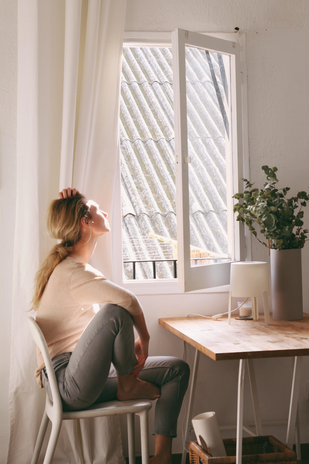Now that I am back in school after a year away, I have started to dive back into lectures, discussion posts, and papers. Along with a position on-campus and juggling extracurriculars, I have felt the pressure to be “on” all the time. Sometimes I have even felt obligated to get assignments done until the late hours of the evening!
Being on top of academics and time management is so important in graduate school, but I also believe that there should be a healthy boundary between work/school and your personal life. I would rather be someone who can get tasks done before the deadline and still be able to enjoy part of their day, instead of being burnt out all the time. In fact, feeling the burn out was a big component of me deciding to take a year away before coming back to graduate school. Personal circumstances and other stressors made me feel like I was being tugged in all directions at once, and as a result, I was procrastinating on assignments and had decreased motivation to go to my classes.
Due to the nature of my program, self-care and avoiding burnout are essential topics for students to understand and engage in for their own well-being. It may seem like these are buzzwords popularized on social media nowadays, but being mindful, present, and just taking in the moment has really helped me recently.
The term slow living originated in Italy in the 1980s, branching out of the slow food (i.e. traditionally and locally grown) movement. It can be defined as “enjoying the moments and putting more energy and enjoyment into fewer things,” according to Laura Malloy, a director for a Harvard-affiliated school program. Instead of endlessly staring at screens, slow living could mean taking the time to unplug and truly focus on what is around you, or pursuing a new hobby that you can truly enjoy and be passionate about.
The principles of slow living, being mindful, and not trying to multitask, are all what I have been trying to practice lately. It seems as if the culture in the United States is very work-oriented: almost as if everyone is very busy with this or that, and that success and financial prospects are praised over one’s feelings or their true passions about their work. Even in myself, I am trying to mitigate the need to work all the time, and if I realize that I am about to hit a wall with assignments, I simply stop and give myself the time to take in my surroundings or take the rest of the day off, instead of trying to push through it.
Even establishing a routine, such as waking up early to give yourself time and space away from others, can be beneficial. I have recently gotten into this habit, and it also has the added benefit of helping me become more productive; after I feel like I have truly recharged, I am able to start my day on the right foot and start on any important tasks in the morning. I am then able to wind down at night and feel accomplished without any stress.
Although a routine of waking up early may not work for everyone, I still encourage readers to find a way to incorporate slow living in their lives in whichever way possible. Realizing and setting boundaries for yourself can help in many ways!

